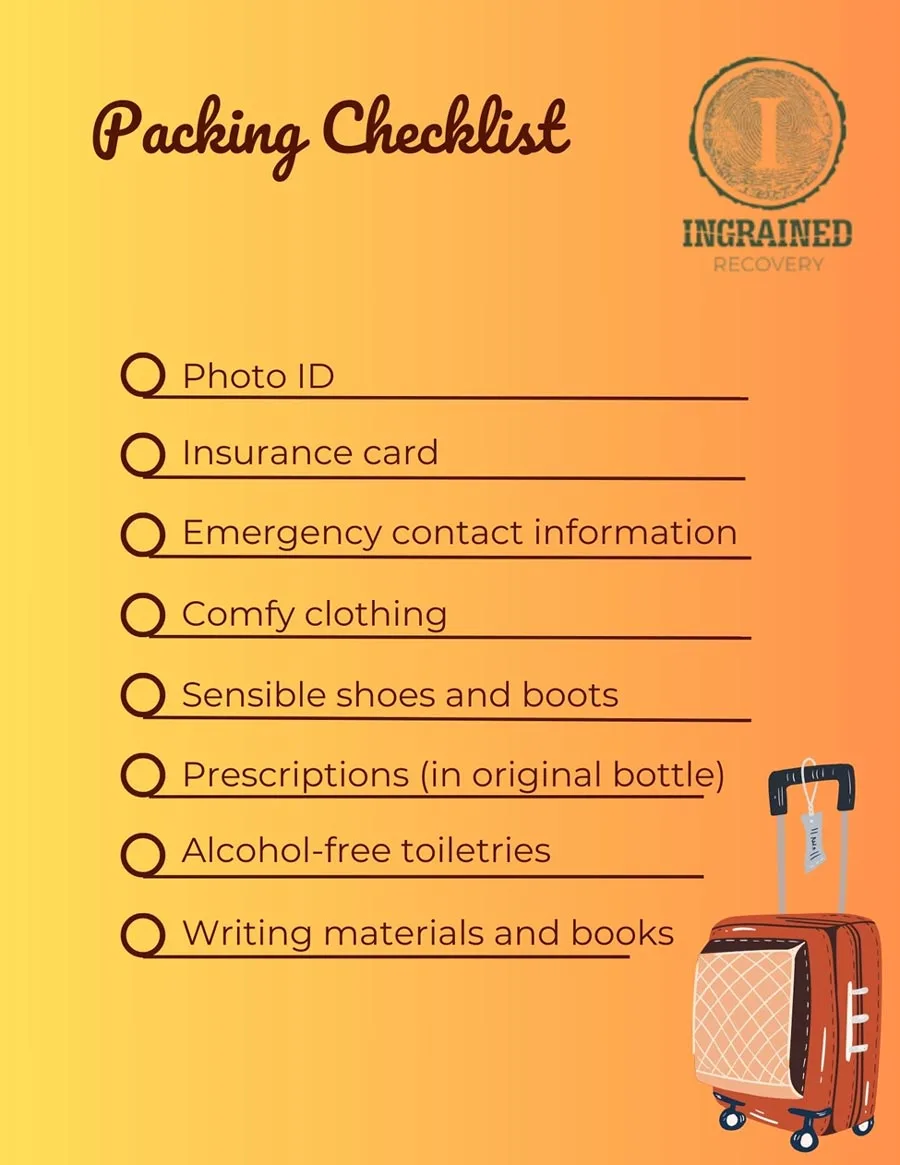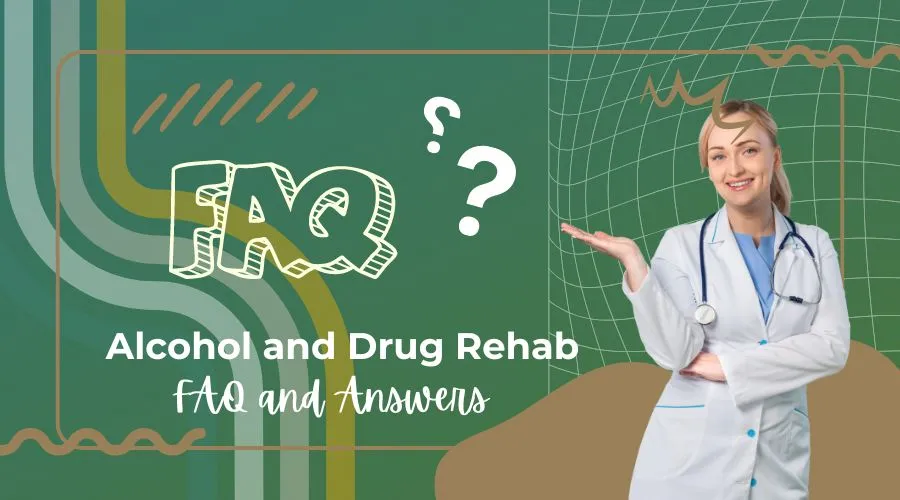Understand Rehab Programs and Be Prepared for Success
If you are considering drug or alcohol addiction treatment, you probably have some questions about rehab on your mind. That’s natural for anyone exploring treatment programs, especially if looking into a treatment center for the first time. You might not realize it right now, but Googling “drug rehab FAQ” is the first step to getting the substance abuse treatment you need.
Ingrained Recovery, located in the gorgeous countryside near Eastman, Georgia, offers inpatient or outpatient care for anyone who needs addiction treatment or counseling for co-occurring mental health concerns. We’ve compiled this list of some frequently asked questions about rehab centers that many people ask when they reach out to us for help.
Keep reading to learn the answers to the most common questions about rehab treatment centers and the recovery process. You might find that treatment is not what you had imagined. In fact, it is life-changing for many.
Get Effective Detox and Rehab Options
Find Help At Ingrained Recovery
8 of the Most Frequently Asked Questions About Rehab and Addiction Treatment
Below, you will find the most frequently asked questions about rehab center facilities and, more importantly, the answers you need. As you read, please keep in mind that these are general answers. No two people reaching out for support have the same struggle.
We customize outpatient and inpatient treatment plans to suit individual needs. We offer a variety of evidence-based treatments that address the whole person, healing the body, mind, and soul.
1) Does Health Insurance Cover Rehab and Addiction Recovery?
Yes! The Affordable Care Act (Obamacare) passed in 2010, making coverage for mental illnesses, including substance abuse treatment, the law of the land. Before the ACA, many insurance companies wiggled their way out of insurance coverage by writing exclusions.
While the ACA requires insurance plans to cover addiction care, coverage may vary based on plan levels. Also, the insurance policy language can be muddy. For instance, many people assume that they can only seek help from in-network providers, but that’s simply not accurate.
We invite you to call our admissions team for help. They’ll gladly call your insurance company on your behalf and pre-determine your eligibility. With our help, you will know about any cost factors or coverage limitations. Once we have this pre-approval from the insurer, we will advise you of all available addiction treatment options. Your call to receive this information from the admissions staff is confidential.
2) What Is Medical Detox Really Like?

Another common concern of many is detoxing. While most express fear to our staff about the withdrawal symptoms, know that we will support you during this critical phase of recovery. Some clients have relatively quiet withdrawals with mild to moderate symptoms; others have more severe responses to metabolizing and releasing the chemicals. Why the swing in intensity?
Several factors can make a difference. These include the drug of choice used, the duration of the addiction, individual tolerance to drugs and alcohol, and metabolic differences.
Medical detox treatment is a must. Well-trained addiction professionals monitor both your physical and mental state during this phase of your treatment. Some symptoms can feel like the flu. But others, such as vomiting and diarrhea, can cause dehydration, convulsions, or even death.
At our rehab center, we have many options to treat those symptoms and keep clients comfortable and safe throughout these challenges. When you undergo a medically supervised detox, you are in a safe environment and will be well on your way to a successful recovery.
3) What Are the Main Differences Between Outpatient Programs and Inpatient Rehab Centers?
Residential care, also known as our inpatient treatment center, is a very structured 24/7 setting. This environment sets inpatients up for success. Inpatient rehab can be particularly helpful for longer-term addictions, co-occurring disorders, or those who have tried outpatient settings previously.
On the other hand, an outpatient program still delivers high-quality, evidence-based treatment. However, outpatients attend therapy only during the day and return to their own homes at night. They are an excellent option for caretakers of children or older family members who would otherwise not be able to attend any treatment centers.
It should be noted that using the FMLA for rehab (Family Medical Leave Act) can provide the space and time needed for inpatient care while preserving your career and specific role protected under the law.
All outpatient or inpatient programs at Ingrained Recovery are delivered by a qualified treatment provider specializing in alcohol abuse and drug rehab. You will be in excellent care regardless of which treatment mode you choose.
4) What Therapy Works Best for a Substance Use Disorder?

Those seeking treatment often want to learn all they can about the best treatment options and therapies. Each person has varying degrees of addiction. We conduct a comprehensive assessment before determining the most appropriate treatment programs.
However, most receive a combination of individual and group therapy. These can include psychotherapy, cognitive behavioral therapy, motivational interviewing, or other proven methods that can be the breakthrough that meets the client’s needs.
In addition, those who have families nearby may also participate in family therapy to heal the wounds of addiction. Family treatment becomes especially important later in the journey, during the first days after leaving treatment, whether your biological family or through a ‘recovery family,’ support is crucial.
5) How Fast Is the Recovery Journey?
Those in our alcohol and drug rehab facility often start to feel better toward the end of their detox. In fact, therapy will likely start during detox. It’s a key time, and your therapist will help you find coping strategies to ease cravings and mood swings.
As you move through the recovery process, our staff will support you on an ongoing basis. You’ll get stronger every day, and you’ll see mood improvements as well as changes to your physical well-being. You will have some holistic treatment programming to choose from.
Remember that Ingrained Recovery is a rehab ranch, with horses, walking trails, and plenty of sunshine and space to try yoga.
Still, there is no cut-and-dry answer to how long people should expect to spend in rehab facilities. That’s the truth; recovery is a lifelong process. One of our favorite quotes wisely advises people in treatment:
Recovery is not a sprint; it’s a lifelong marathon where every stride forward brings you closer to a clean and sober life.
While anyone is free to leave rehab early, staying for the duration of recommended treatment is highly recommended.
6) Can You Help with a Dual Diagnosis (Co-Occurring Disorders)?
We provide expert support to anyone with a dual diagnosis. We have experience with treatment for substance use along with depression, anxiety, trauma, or other mental health concerns. An added benefit we offer is our equine therapy, which is incredibly effective for managing a co-occurring disorder.
7) What Should I Pack for the Drug or Alcohol Addiction Treatment Center?

We also have people ask what to bring to rehab at Ingrained and what to avoid. Here are some things to pack for your time at the treatment center:
- Your photo ID, insurance coverage info, and emergency contact data
- Pens, paper, journaling materials, and books to fill your free time
- Comfortable clothing and the appropriate footwear for therapy, working out, and equine therapy
- Personal toiletries and hygiene items; these items must be free of alcohol
- Any prescription medications you bring to the rehab center with you must be in their original pharmacy bottle and labeled with the prescribing doctor’s information.
On the other hand, here are some things to avoid:
- Cigarettes, vapes, etc – we do not have any smoking areas on-site
- Over-the-counter drugs or alcohol
- Playing cards or gambling items
- Energy drinks or outside foods
- Inappropriate attire
- Large amounts of cash
- Expensive accessories or fine jewelry
These things can distract or trigger others and are not necessary for rehab.
Get Accredited Treatment at Ingrained
Find Help At Ingrained Recovery
8) How Do I Stay Sober and Avoid Relapse After Drug and Alcohol Abuse Rehab?
Many rehab centers send clients out the door without a vital piece of the recovery puzzle: the aftercare plan. Some call this a relapse prevention plan, but it involves a comprehensive look into what a client will need for effective support following treatment..
Drug and alcohol addiction does not end when you exit a substance abuse facility, and even though you will likely write a goodbye letter to your addiction, challenges and cravings will still arise. So, planning is a key way to maintain your new, healthier lifestyle.
You will work with your counselor (individually in a self-assessment or during group therapy) to decide how you can avoid future substance use. This may include programming the numbers of “safe” family or friends into your phone while at rehab.
Some people aim to develop new or improved life skills to earn more money to support their families. Others do a cost-benefit analysis to determine whether the cost of using drugs again is worth forfeiting their future opportunities.
We also urge clients to seek local support groups when returning to their home community. Even the most rural areas have access today, thanks to online groups and wireless hotspots. While the best-known support groups are the 12-step programs, Alcoholics Anonymous (AA) and Narcotics Anonymous (NA), SMART Recovery meetings are another excellent recovery support option to help you stay clean and sober.
Connect with Ingrained Recovery for Effective Care Today
We are here to help you claim the sober new life that you want. The life you deserve. The life your family deserves. We can get you into substance abuse rehab sooner than you think – often as soon as today or tomorrow.
You don’t need to live with addiction any longer – connect with us today for any additional information or questions about rehab.

